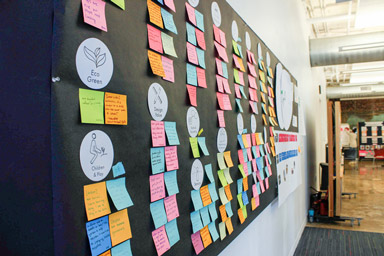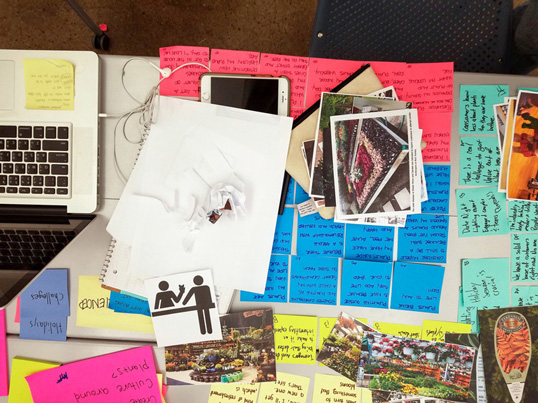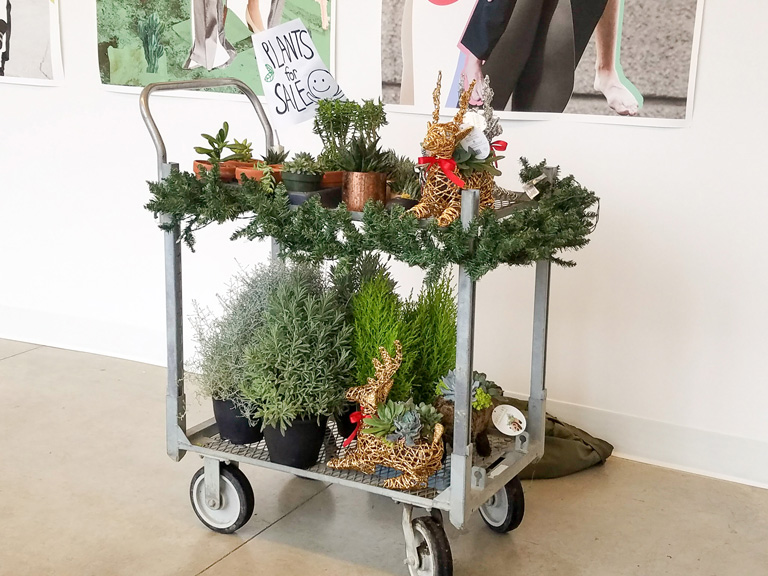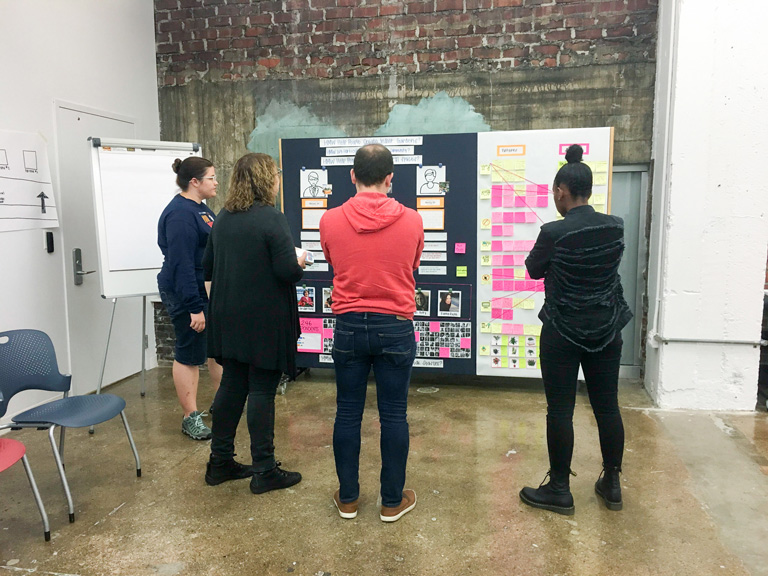CCAD MDes inaugural project: Innovation in the gardening retail model

CCAD MDes students recently completed their inaugural, real-world project, and the results showed how our students have blossomed!
For this project, students teamed with Foertmeyer & Sons, a 25-year-old gardening and greenhouse center based here in central Ohio. The challenge?
“Create an innovative buying experience in gardening that also increases revenue.”
To be sure, the gardening marketplace in any metro area is likely saturated. You can find gardening products at a host of retailers that aren’t gardening centers at all — grocery stores, big box hardware stores, farmers' markets, club stores, etc. So, to find new ways to sell is a difficult challenge. Fortunately, design thinking strategies and the creative minds of our students were ready to achieve this goal. And the results were spot on!
The Process
Students were split into three teams. Each team's goal was to present a new revenue model to the client. Each team — in collaboration with the client — navigated a design thinking process to develop new, innovative garden retail buying experiences.

Retrieved from Interaction-design.org, 12/2017
What We Learned
Through the research and testing phases, students watched their ideas take meaningful shape. The teams performed primary and secondary research to understand the horticulture industry and learn how to connect horticulture to people with varying degrees of interest and experience in gardening. This included:
- Deep interviews with plant experts and greenhouse staff
- Contextual interviews with plant enthusiasts and consumers
- Hundreds of surveys to quantify insights
- Prototyping to test shopping experience and shopper engagement
- UI/UX testing to build meaningful, technological platforms to facilitate plant buying and ownership
Some significant insights learned through the research and/or testing phases include:
- People are apprehensive about plants and gardening because they fear killing the plants.
- Plants received as gifts have an emotional connection, which leads to an increased interest in caring for them.
- Consumers find information on plant care difficult to understand and put into practice.
- Traditional garden centers are not convenient to modern consumer lifestyles/culture.
These revelations were instrumental in informing the students' concepts. Once ideation took root, the teams tested their concepts for feedback with potential customers. Each group created and tested several concepts, with the three “winning” concepts (one for each team) emerging — all showing a clear empathy for the customer. It is these human-centric insights that make each innovative and valuable to the customer.
The Concepts
|
Plant as a Gift A custom plant gift service that pairs people with plants that fit their space and lifestyle and helps them care for their plants, successfully, long-term. The concept creates an emotional connection to plant ownership. |
Plant as a Reminder Perennials that rebloom every year during a child’s birth month. This concept uses the natural blooming cycles of various plants to connect plant ownership with an annual reminder of a joyful life stage or celebratory moment. |
Plants in Motion A mobile retail experience, a service that brings plants to the community, where customers can experience products on a personal level, with direct access to a plant expert for help. |
Each concept directly overcomes a concern regarding owning plants or flowers.
Plant as a Gift keeps the owner engaged, and the brand at top of mind.
Plant as a Reminder places plant ownership in the context of something meaningful to the owner.
Plants in Motion brings the purchasing experience and plant education to the shoppers — adding convenience and eliminating the need to travel to the store to shop.
Ultimately, through this systematic process, the MDes teams developed revenue-building applications for the client that were innovative, relevant and — most importantly — attainable. We are very proud to have successfully completed our inaugural project, and are eager to tackle the next challenge!
Interested in the intersection of strategy, creativity, and leadership? Learn more about CCAD’s Master of Design in Integrative Design program.



Learn more about CCAD's Corporate and Community Projects or apply here.